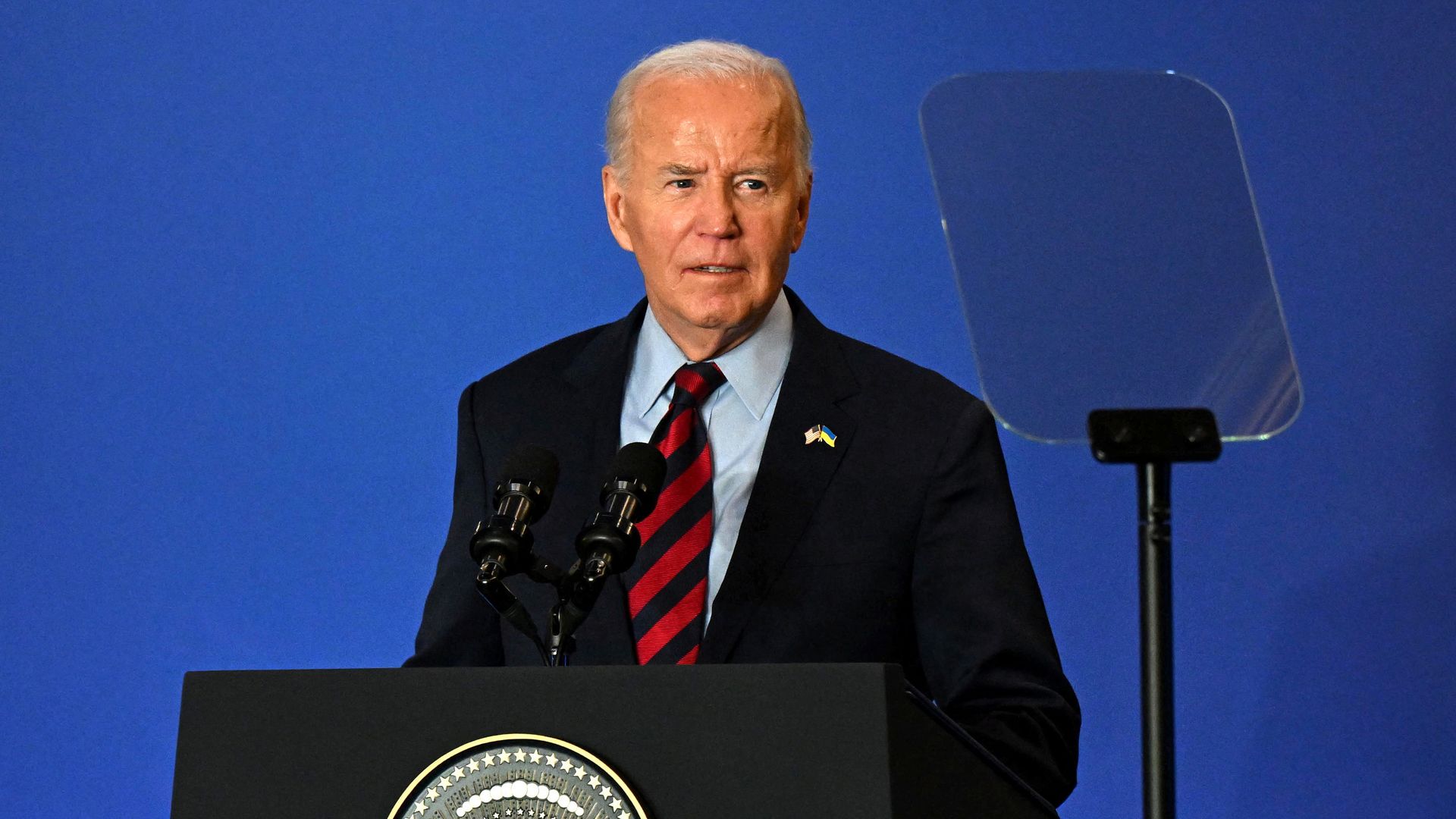
Biden student loan forgiveness plan gets a win in federal court
By Ray Bogan (Political Correspondent)
President Biden’s student loan forgiveness plan can move forward after a federal judge allowed a temporary restraining order to expire. This, however, does not mean the Biden administration won the case, which will continue working its way through the federal court system.
Media Landscape
See how news outlets across the political spectrum are covering this story. Learn moreBias Distribution
Left
Untracked Bias
The lawsuit was filed by seven Republican states: Alabama, Arkansas, Florida, Georgia, Missouri, North Dakota and Ohio. They argued Biden’s new plan to forgive student debt is illegal.

Download the SAN app today to stay up-to-date with Unbiased. Straight Facts™.
Point phone camera here
On Wednesday, Oct. 2, a federal judge removed Georgia from the case and moved it to Missouri. According to Reuters, the judge determined Georgia lacked legal standing to sue. The state said it could potentially lose tax revenue but the judge said that would be incidental.
The judge ruled Missouri does have standing to sue because it operates a nonprofit student loan servicer, called MOHELA, which could potentially lose millions of dollars if the Biden plan is ultimately approved.
“The fact remains that this lawsuit reflects an ongoing effort by Republican elected officials who want to prevent millions of their own constituents from getting breathing room on their student loans,” a Department of Education spokesperson told NBC News.
This loan forgiveness was announced after the Supreme Court struck down Biden’s original plan to forgive approximately $400 billion in loans for as many as 43 million Americans back in June 2023.
Get up to speed on the stories leading the day every weekday morning. Sign up for the newsletter today!
Learn more about our emails. Unsubscribe anytime.
By entering your email, you agree to the Terms & Conditions and acknowledge the Privacy Policy.
This debt relief effort would cancel up to $20,000 for borrowers whose balances are greater than the original total, something that happens on income driven plans when interest builds.
It would also provide debt cancellation for undergraduate borrowers who entered repayment before July 2005 or graduate borrowers who entered repayment before July 2000.
There are multiple other ways to get relief under the plan. The Department of Education is still working to finalize who will qualify.
Ray Bogan
President Biden’s student loan forgiveness plan can move forward after a federal judge allowed a temporary restraining order to expire. This however does not mean the Biden administration won the case, it will continue working its way through the federal court system.
The lawsuit was filed by seven Republican states – Alabama, Arkansas, Florida, Georgia, Missouri, North Dakota and Ohio. They argued Biden’s new plan to forgive student debt is illegal.
On Wednesday, a federal judge removed Georgia from the case and moved it to Missouri. The judge determined Georgia lacked legal standing to sue; the state said they could potentially lose tax revenue but the judge determined that would be incidental. The judge determined Missouri does have standing to sue because it operates a nonprofit student loan servicer, called MOHELA, which could potentially lose millions of dollars if the Biden plan is ultimately approved.
A Department of Education spokesperson told NBC News – “The fact remains that this lawsuit reflects an ongoing effort by Republican elected officials who want to prevent millions of their own constituents from getting breathing room on their student loans.”
This loan forgiveness was announced after the Supreme Court struck down Biden’s original plan to forgive approximately $400 billion in loans for as many as 43 million Americans back in June 2023.
This debt relief effort would have canceled up to $20,000 for borrowers whose balances are greater than the original total, something that happens on income driven plans when interest builds.
It would have also provided debt cancellation for undergraduate borrowers who entered repayment before July 2005 or graduate borrowers who entered repayment before July 2000.
There are multiple other ways to get relief under the plan. The Department of Education is still working to finalize who will qualify.
Media Landscape
See how news outlets across the political spectrum are covering this story. Learn moreBias Distribution
Left
Untracked Bias
Straight to your inbox.
By entering your email, you agree to the Terms & Conditions and acknowledge the Privacy Policy.
MOST POPULAR
-
 Getty Images
Getty Images
Former Social Security head claims DOGE will cause payment interruptions
Read6 hrs ago -
 Getty Images
Getty Images
Gen Z's approval rating constantly fluctuating
Watch 3:416 hrs ago -
 Getty Images
Getty Images
Trump to put tariffs on agricultural imports, tells farmers to ‘have fun’
Watch 2:0710 hrs ago -
 AP Images
AP Images
RFK Jr. says measles outbreak is a ‘call to action,’ pushes vaccines
Watch 1:4416 hrs ago




